Filter by
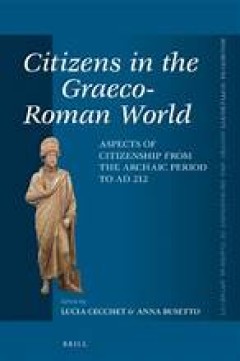
Citizens in the Graeco-Roman World
The volume provides a collection of studies on citizenship in the Graeco-Roman world and the political and philosophical reflection on it. It encourages the reader to complement the traditional institutional approach to citizenship with a broader perspective.
- Edition
- 407
- ISBN/ISSN
- 9789004352612
- Collation
- -
- Series Title
- Mnemosyne, Supplements
- Call Number
- -
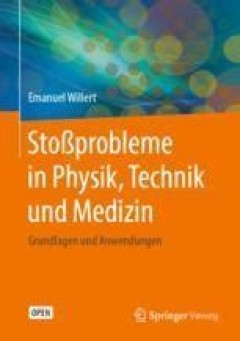
Stoßprobleme in Physik, Technik und Medizin
Dieses Open Access Buch widmet sich dem Problem der Mechanik des Zusammenstoßes zweier makroskopischer Körper. Falls die Dynamik der Körper als Ganzes dies erlaubt, ohne in unüberschaubare Komplexität zu verfallen (in der Regel ist das nur für das reine Normalstoßproblem der Fall), werden allgemeine axialsymmetrische Stoßpartner betrachtet. Für das allgemeine räumliche Stoßproblem wi…
- Edition
- 1
- ISBN/ISSN
- 9783662602966
- Collation
- XV, 241 hlm; ill., lamp.,
- Series Title
- -
- Call Number
- -

Data-Driven Fault Detection and Reasoning for Industrial Monitoring
This open access book assesses the potential of data-driven methods in industrial process monitoring engineering. The process modeling, fault detection, classification, isolation, and reasoning are studied in detail. These methods can be used to improve the safety and reliability of industrial processes. Fault diagnosis, including fault detection and reasoning, has attracted engineers and scien…
- Edition
- -
- ISBN/ISSN
- 9789811680441
- Collation
- -
- Series Title
- -
- Call Number
- -
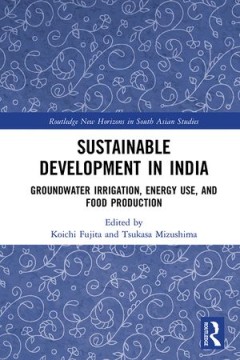
Sustainable Development in India: Groundwater Irrigation, Energy Use, and Foo…
This book explores and interrogates the food–water–energy nexus, arguably the most crucial factor in sustaining India’s economic development. The book sheds light on different experiences faced in states across India, including the consequences of electricity tariff reforms and related policies on irrigated agriculture. Part 1 focuses on the historical development of agriculture and socia…
- Edition
- -
- ISBN/ISSN
- 9781003036074
- Collation
- -
- Series Title
- -
- Call Number
- 305.8 SUS s

Putting PIRLS to Use in Classrooms Across the Globe
This open access book provides teachers with approaches to strengthen reading comprehension instruction based on scientific research and evidence-based didactic principles. In this volume, the Progress in International Reading Study (PIRLS) framework is used to inform teachers about the skills and knowledge that students need to comprehend certain texts. The book gives practical guidance on how…
- Edition
- -
- ISBN/ISSN
- 978-3-030-95266-2
- Collation
- -
- Series Title
- -
- Call Number
- -

Ethnomusicology, Queerness, Masculinity
This open access book explores the disciplinary, disciplined, and recent interdisciplinary sites and productions of ethnomusicology and queerness, arguing that both academic realms are founded upon a destructive masculinity—indissolubly linked to coloniality and epistemic hegemony—and marked by a monologic, ethnocentric silencing of embodied, same-sex desire. Ethnomusicology’s fetishizati…
- Edition
- -
- ISBN/ISSN
- 978-3-031-15313-6
- Collation
- X, 240
- Series Title
- -
- Call Number
- -

'The Bell Curve' in Perspective
This open access book examines the implications of The Bell Curve for the social, economic, and political developments of the early 21st century. Following a review of the reception of The Bell Curve and its place in the campaign to end affirmative action, Professor Tucker analyses Herrnstein’s concept of the “meritocracy” in relation to earlier 20th century eugenics and the dramatic incr…
- Edition
- -
- ISBN/ISSN
- 978-3-031-41614-9
- Collation
- XIII, 124
- Series Title
- -
- Call Number
- -
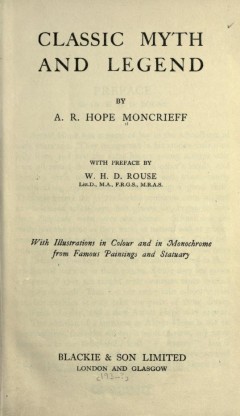
Classic myth and legend
- Edition
- -
- ISBN/ISSN
- -
- Collation
- xvi, 443 p., [21] leaves of plates : 20 cm,Includes index
- Series Title
- -
- Call Number
- -
- Edition
- -
- ISBN/ISSN
- -
- Collation
- xvi, 443 p., [21] leaves of plates : 20 cm,Includes index
- Series Title
- -
- Call Number
- -
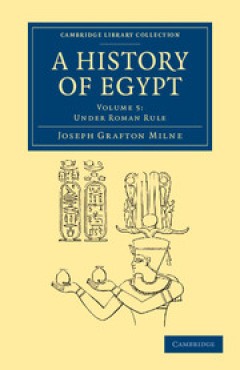
A History of Egypt
Published in six volumes between 1894 and 1905, this collection served as a valuable reference work for students and scholars of Egyptology at a time when ongoing archaeological excavations were adding significantly to the understanding of one of the world's oldest civilisations. At the forefront of this research was Sir William Matthew Flinders Petrie (1853–1942), whose pioneering methods ma…
- Edition
- -
- ISBN/ISSN
- 9781107325180
- Collation
- -
- Series Title
- Cambridge Library Collection - Archaeology
- Call Number
- -
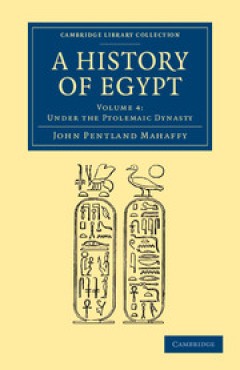
A History of Egypt
Published in six volumes between 1894 and 1905, this collection served as a valuable reference work for students and scholars of Egyptology at a time when ongoing archaeological excavations were adding significantly to the understanding of one of the world's oldest civilisations. At the forefront of this research was Sir William Matthew Flinders Petrie (1853–1942), whose pioneering methods ma…
- Edition
- -
- ISBN/ISSN
- 9781107325173
- Collation
- -
- Series Title
- Cambridge Library Collection - Archaeology
- Call Number
- -
 Computer Science, Information & General Works
Computer Science, Information & General Works  Philosophy & Psychology
Philosophy & Psychology  Religion
Religion  Social Sciences
Social Sciences  Language
Language  Pure Science
Pure Science  Applied Sciences
Applied Sciences  Art & Recreation
Art & Recreation  Literature
Literature  History & Geography
History & Geography